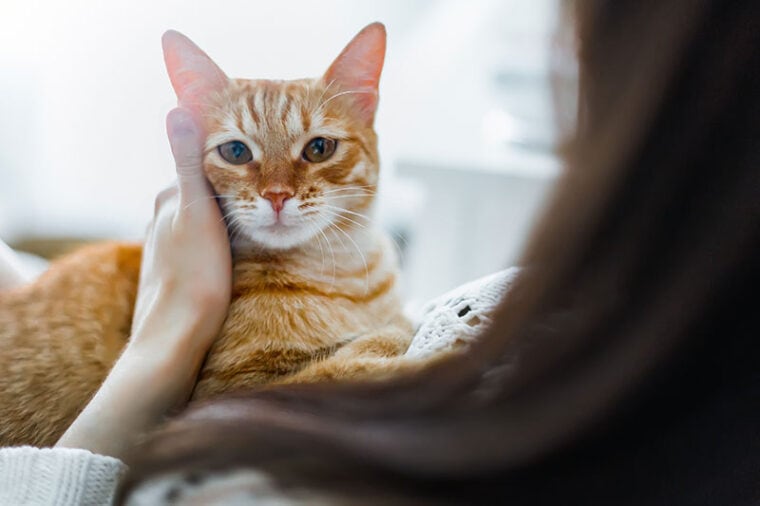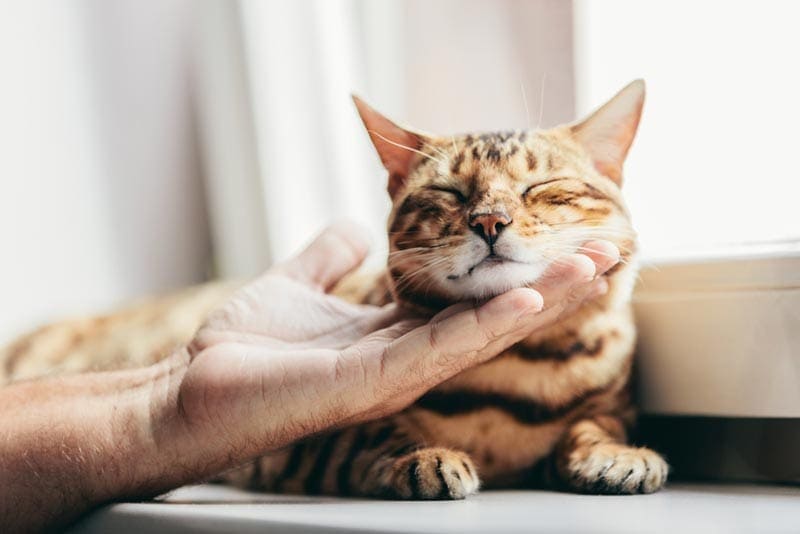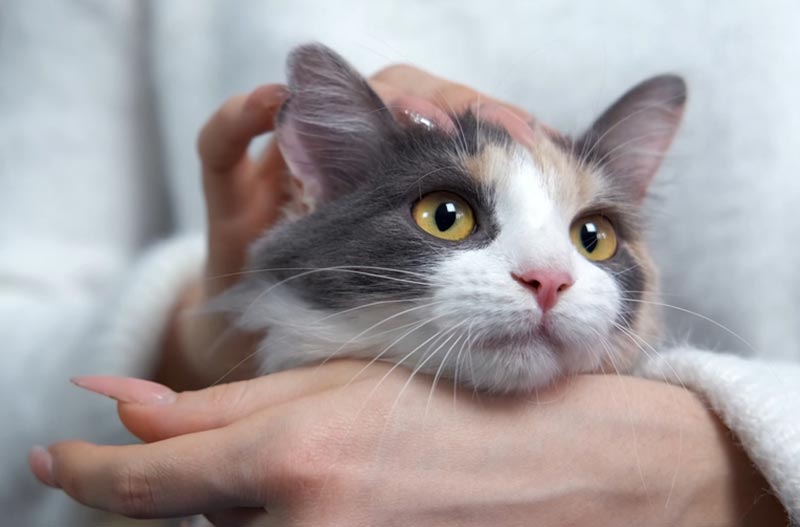
Hearing or feeling your cat purring is such a soothing thing to experience. You know they’re happy and content to be with you, and it can serve as a way for you and your kitty to bond.
Some cats will lie on top of their owners and purr, sometimes just because they’re happy and other times because they want to provide some kind of relief for a physical illness or emotional state. There are a lot of reasons that cats purr, though.
Many people don’t realize that cats will purr when they are in pain, but not likely. The reasons why are somewhat mysterious, but we do have some ideas.
Why Do Cats Purr When in Pain?
Nobody really knows why cats purr when they are in pain, especially since the reason could vary between cats. Obviously, we have no way to ask them. There are a few ideas behind why cats may purr due to pain, though.
The first is that it may simply be a soothing mechanism. Think of it like a little kid sucking on their thumb or a pacifier, or an adult doing gentle stretching to help soothe physical or emotional pain. It’s possible that purring feels physically soothing to your cat, or it may cause them to remember something like the purring that their mother made while they were nursing.
The second reason that some cats purr while in pain is related to the frequency that cat purrs occur at. Some studies have indicated that the frequency of a cat’s purr occurs at the same frequency as the frequency that bone healing can occur at. Some cats may purr as a way to heal themselves from an illness or injury because the frequency of their purrs is physically helping their bodies heal. Interestingly, some people believe that cats will purr on top of people who are sick or injured for the same reason.

How Do I Know If My Cat Is Happy or in Pain?
Since there are a variety of reasons your cat may be purring, it can be difficult to know just how your cat is feeling. If you’re concerned that maybe you’re overlooking purring that is occurring due to an injury, illness, or stress, then you’ll be happy to know that there are a few ways you can differentiate between purring for pain and purring for happiness.
While the purrs sound the same, your cat’s behavior is likely to be markedly different between when they are happy and when they are experiencing pain. If your cat is in pain, there will likely be some other significant symptoms that you’ll notice, including lethargy and inappetence. If your cat is experiencing a physical illness, like diabetes, then you may notice symptoms of the disease, like increased water intake.
Happy cats will typically not have abnormal behaviors, so watch to see if your cat is acting like their normal selves or showing symptoms of an illness. You can expect a cat that is purring due to happiness to not exhibit any lethargy or inappetence.

Conclusion
It’s not uncommon for cats to purr when they are in pain, although many people are unaware of this behavior. You may notice your cat purring during times of high stress, like vet visits, or times of physical pain, like during labor or after an injury occurs.
You can typically tell the difference between the reasons that your cat could be purring based on their other behaviors. Happy cats will act the same way they usually act, while cats experiencing pain often exhibit multiple symptoms of problems. These symptoms can be subtle, though so if you notice your cat purring more than normal, you should evaluate the situation.
Featured Image Credit: Nikita Dukhnik, Shutterstock






